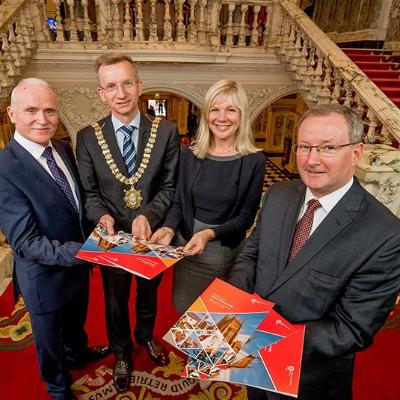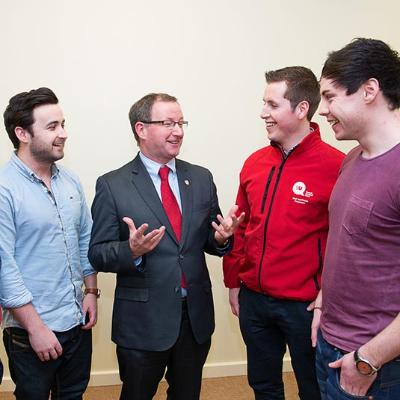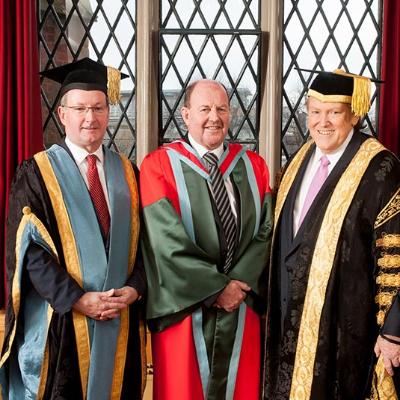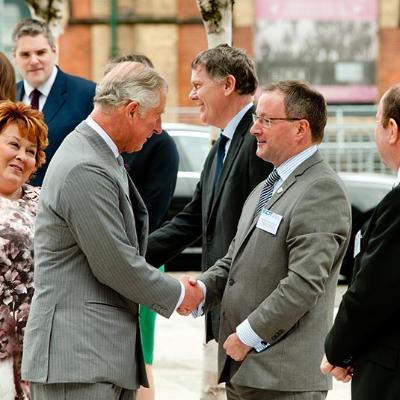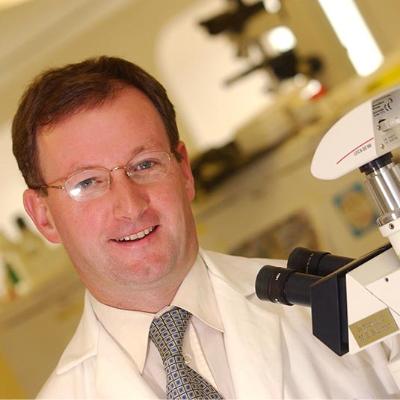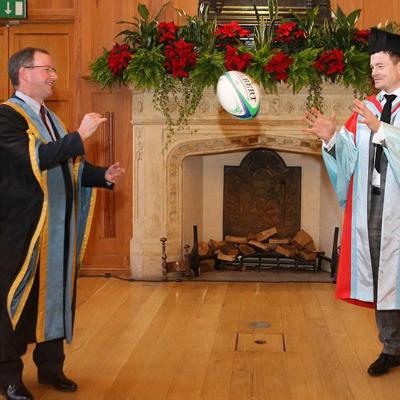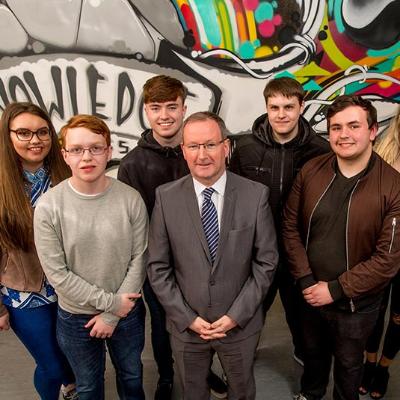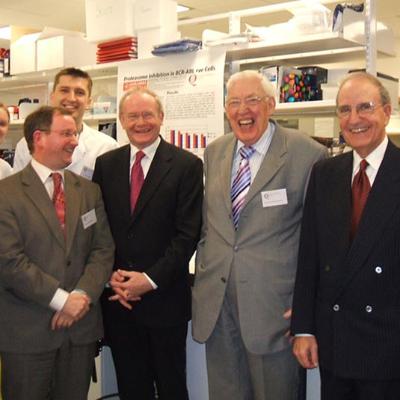Professor Patrick Johnston
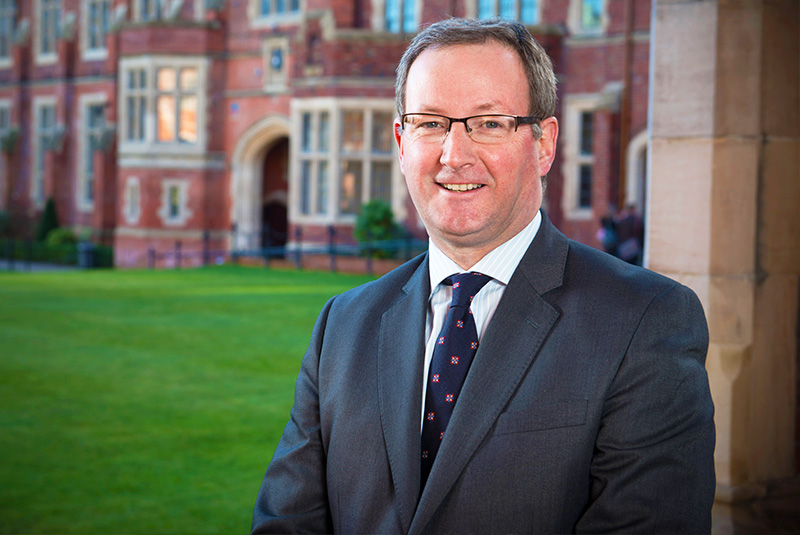
Professor Patrick G. Johnston Obituary
It is with great regret and deep sadness that we announce the death, on Sunday 4 June 2017,
of our President and Vice-Chancellor, Professor Patrick Johnston.
Professor Patrick Johnston, or Paddy to those who knew him, was born in Derry, Northern Ireland on 14 September 1958. He was a pupil at St Columb’s College in his home city before joining University College Dublin to read medicine, graduating in 1982 with a MB BCh with distinction, followed by his MD in 1988.
He continued his training in internal medicine and medical oncology at the Mater and St James’s University teaching hospitals in Dublin before taking up a Fellowship at the National Cancer Institute (NCI), National Institutes of Health, USA in 1987. There he pursued further clinical training in oncology and his doctoral studies in molecular pharmacology, drug resistance and drug development. In recognition of this work he received the ASCO Young Investigator Award and the Technology Award from the NCI. He was promoted to senior investigator in 1991 achieving tenure in 1994.
Although very successful in the US, Paddy wished to return to N. Ireland to help develop cancer services there. In 1996 he was appointed as Professor and Head of the Department of Oncology at Queen’s University Belfast and the Belfast City Hospital. He led the modernisation of cancer services across Northern Ireland, including the development of a state-of-the-art Clinical Cancer Centre and a new research Centre for Cancer Research and Cell Biology (CCRCB) at the University which opened in 2007.
As a parallel initiative Paddy led a unique international collaboration engaging with the leadership of the NCI in the United States to form the NCI- All Ireland Cancer Consortium, focused on cancer prevention, public health, cancer treatment and clinical trials.
Paddy was appointed Dean of the School of Medicine, Dentistry and Biomedical Sciences at Queen’s in 2007. In 2011 he was appointed Chair of the Translational Research Group of the Medical Research Council (MRC) and also served as a Board member of the MRC. In 2012 he was elected to Fellowship of the Academy of Medical Sciences and in 2013 he was named winner of the international Bob Pinedo Cancer Care Prize, recognising his work in translating discovery science. In 2012 the University was awarded the Queen’s Diamond Jubilee Anniversary Award based on Paddy’s leadership of the Northern Ireland Comprehensive Cancer Services programme, which had led to a marked reduction in cancer mortality rates.
Over the past 25 years his research has focused on understanding mechanisms of drug resistance in gastrointestinal cancers. This has resulted in a number of prestigious landmark publications, over 20 patents and grants of over £100 million from major research and philanthropic bodies. He is the founder of several biotechnology companies including Almac Diagnostics and Fusion Antibodies. Professor Johnston was undoubtedly one of the most outstanding contributors to cancer research of his generation.
Having led the School of Medicine, Dentistry and Biomedical Sciences for some seven years, Professor Johnston became the 12th President and Vice-Chancellor of Queen’s University Belfast in March 2014. In this latter post, he had an enormous impact as he took forward his ambitious vision for the University to 2020 and beyond. Under his leadership there has been a renewed focus on Queen's as a world class international university, supporting outstanding staff and students, and focused on the needs of society. During his three years at the helm, research income to the University has doubled, international student numbers have significantly increased and the University engagement with the local, national and international communities has been transformed. His personal leadership attributes which have played a large part in his success as Vice-Chancellor included: inspiring others by creating a clear vision and strategic direction; the pursuit of excellence; personal integrity, commitment and tenacity; building a culture of consensus and teamwork, underpinned by challenging but achievable targets; allowing others to develop conviction and belief in themselves and to take credit for their achievements. He wanted Queen’s to work at the very highest level in everything that it did, to improve people’s lives locally, nationally and internationally.
James O’Kane, Registrar and Chief Operating Officer at Queen’s remembers Paddy as a ‘modest, yet truly inspirational and visionary leader, who never accepted second best and who inspired those around him to dream no little dreams’. ‘His work to ensure that internationally competitive research and teaching impacted locally on the social, economic and cultural development of N. Ireland was a keystone of his leadership’.
Professor Johnston died while cycling in his beloved Donegal and is survived by his wife Iseult and his four sons Seamus, Eoghan, Niall and Ruairi.

